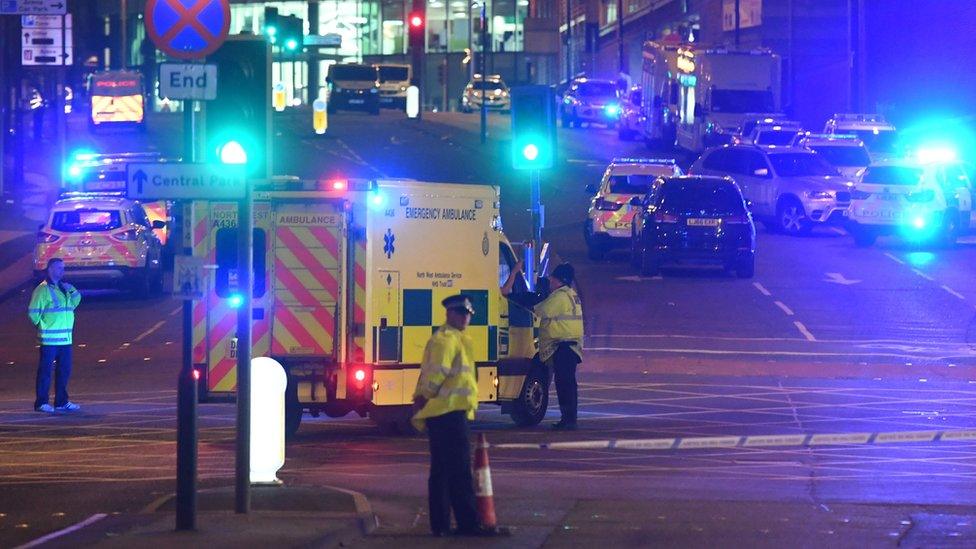Manchester attack: Kerslake calls for families charter
- Published
Martyn Hett's mother Figen Murray said the families should have been given more respect and time
There were "critical" issues with communications between emergency services after the Manchester attack, a report says.
Salman Abedi detonated a bomb after a concert on 22 May, killing 22 people.
Lord Kerslake's progress report also criticised intrusive media attention and said public bodies dealing with families of the bereaved should make sure they are not overlooked.
"Certainly things didn't go in the way people would have wanted to," he said.
Lord Kerslake said the issues were between both the different services and between the services and the public following the attack, after a concert by Ariana Grande.
He added the panel had a "better understanding" of why there was a delay in the fire service entering the arena on the night.
But he said he would not comment further under the publication of the full report in March.
A leaked report revealed fire crews were deployed to the arena one hour and 47 minutes after the bombing.
'Angry and cautious'
Stuart Murray, whose stepson Martyn Hett died, said media intrusion was "not the way to make an impression".
Mr Murray said: "The media found the addresses of our children who don't live at home and also some of Martyn's friends.
"His flatmate had people knocking and this was before we even had news and confirmation of what had happened.
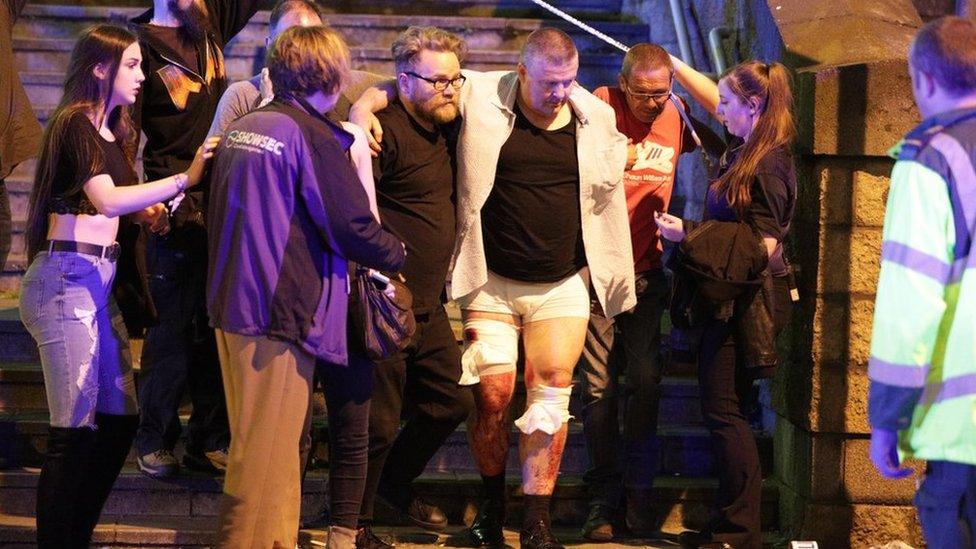
The review is assessing the emergency services' response to the attack at Manchester Arena
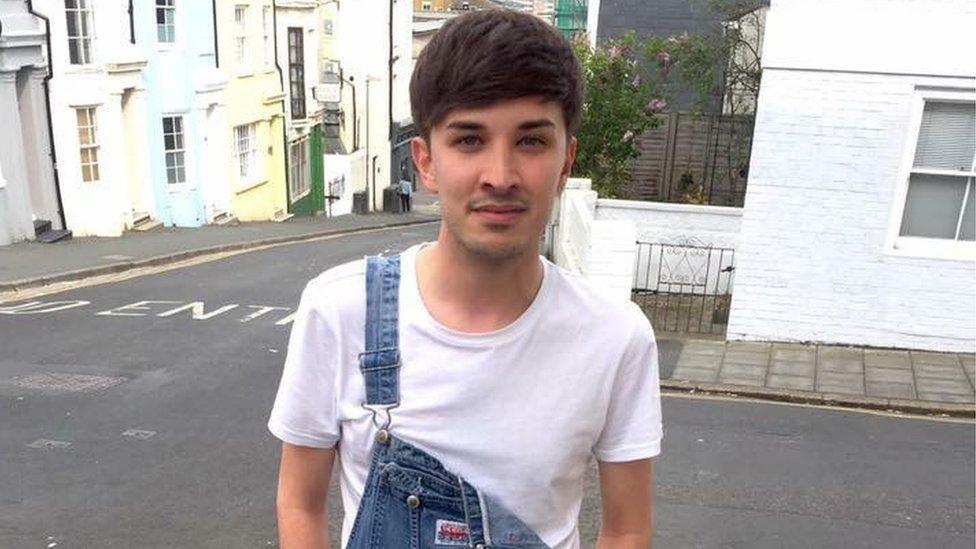
Martyn Hett was one of the 22 people killed in the blast
"It makes you angry and cautious how you would deal with the media thereafter. That's not the way to make an impression if you want to work with the family or be involved with them.
"Overall I think we've been looked after fantastically by everybody involved, but there's always going to be lessons to be learned."
Lord Kerslake's progress report into the bombing said public bodies in Greater Manchester should adopt a charter proposed by Bishop James Jones' Hillsborough review.
The Kerslake review was commissioned by Mayor Andy Burnham to assess Greater Manchester's readiness for the attack and look at the response of the city's agencies and emergency services.
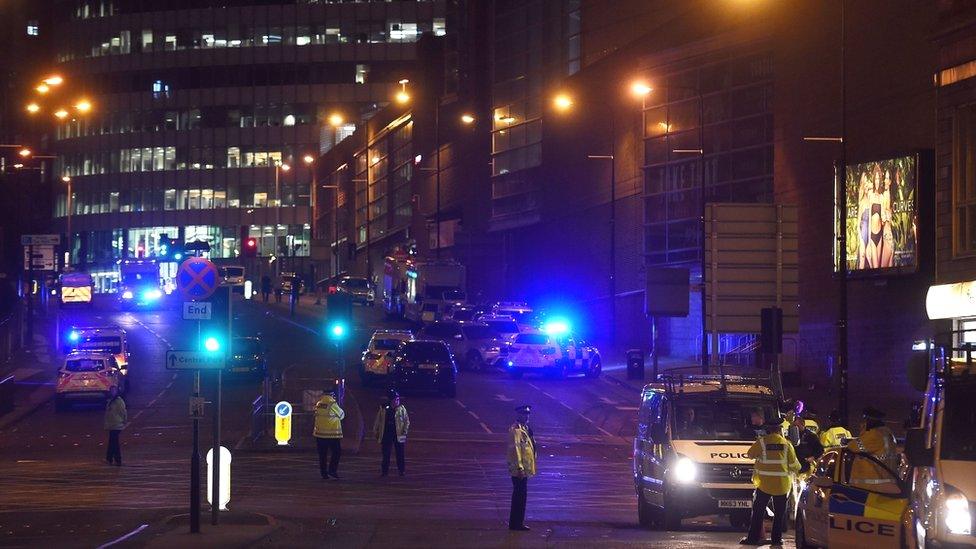
Emergency services, NHS staff and Victoria station staff are among those who have contributed to the review
More than 170 people, including young people who were at the concert, have participated in the review via a phone line set up by the NSPCC.
The panel has also spoken to members of the emergency services and public bodies involved in the attack.
The progress report said more than 400 documents have been submitted and the panel is also looking into the role of both mainstream and social media.
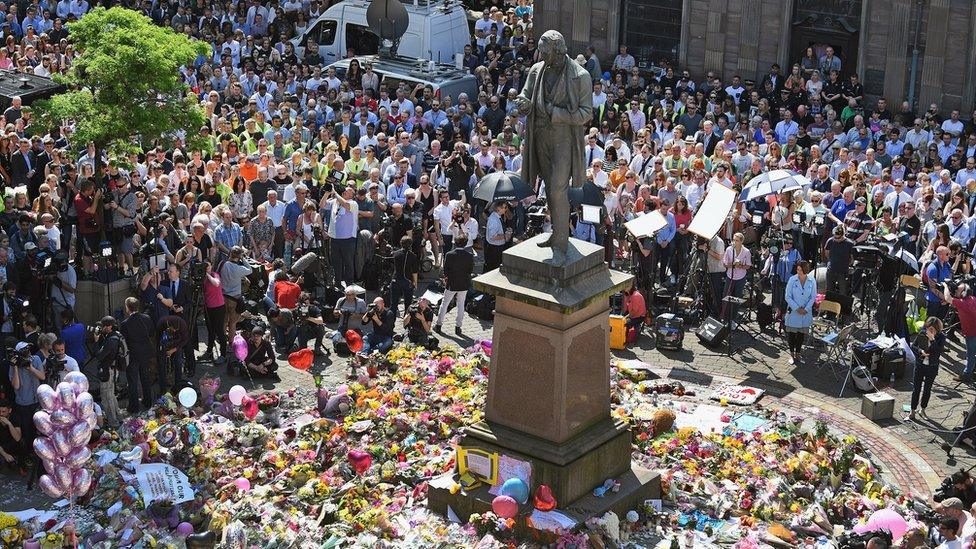
St Ann's Square in Manchester became the focus of tributes after the attack
Lord Kerslake said bereaved families and those injured had been put "at the heart" of the report.
He said: "The panel wants to ensure that the ethos of putting families first isn't lost following this tragedy or in the future; that's why we are recommending Greater Manchester adopts the Charter for Families Bereaved through Public Tragedy introduced as part of the Right Reverend Jones report."

Analysis
By Dominic Casciani, BBC home affairs correspondent
Every trainee reporter dreads the first time they are sent to do what's grimly known in the business as the "death knock". And it's largely down to their personal ethics and conduct how it will go.
But if a death is part of a national news story - and friends and family have posted details on social media that the whole world can read - there are inevitably going to be more journalists, from more organisations, under more pressure from editors, to get "the interview".
The BBC's published Editorial Guidelines state we will not approach a family until there has been a thorough consideration of the public interest and the right to privacy.
We will often write to a family or speak to a trusted intermediary rather than camp on the doorstep.
The aim is to fulfil our duty to try to get the facts right - but also give them time and space to think without feeling under pressure.
But at the same time, the public rely on journalists to report sad events - and to report them accurately. So an inevitable part of the job is always going to be speaking to people who are very upset - and who may, for understandable reasons, become upset at us for approaching them.

Lord Kerslake said the review had given everyone the chance to "share their experiences of that dreadful night and the days that followed".
The charter commits public bodies to "becoming an organisation which strives to support the bereaved and vulnerable, put the public interest above their own reputation, assist the search for truth by being open and honest under scrutiny, be held to account and not mislead the public or the media".
Lord Kerslake added: "We really wanted in this review to tell the story from the point of view of the bereaved and the injured and clearly a lot of the media handled things respectfully, but there were some occasions where they really didn't.
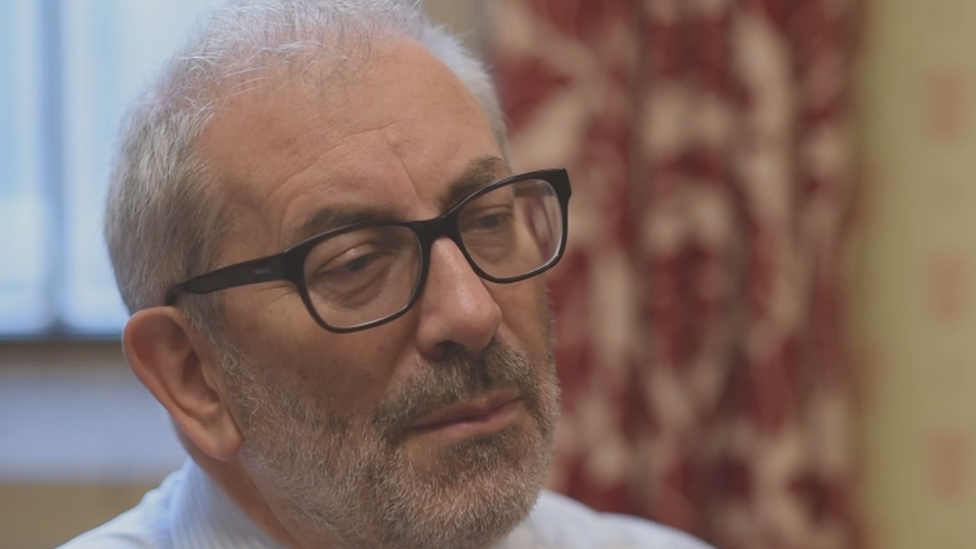
Lord Kerslake is the former head of the civil service
"We want to look at what can we learn from this, it's all about the way in which people behave, the respect with which they treat those caught up in these terrible events."
Mr Burnham has urged for public bodies in Greater Manchester to sign up to the charter and "provide their fullest co-operation" to the panel.
- Published6 October 2017
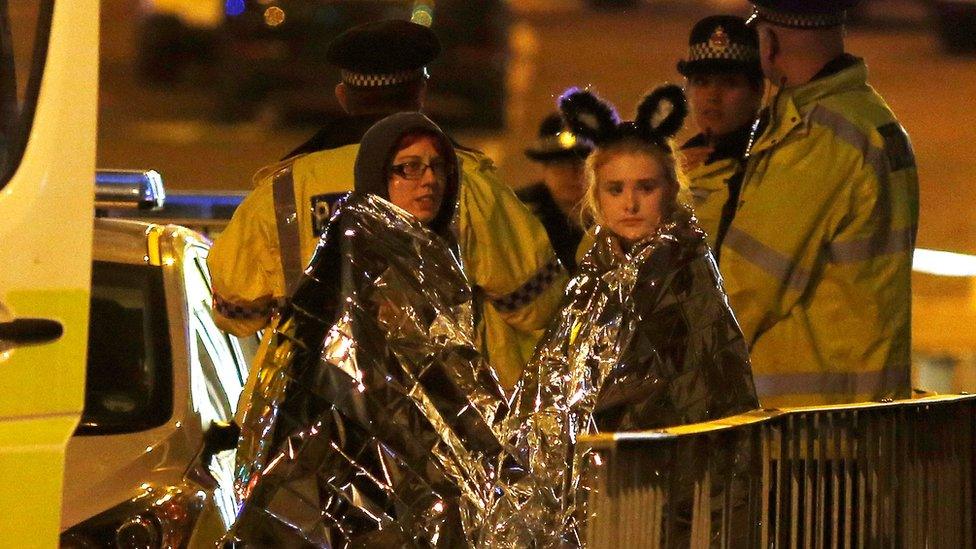
- Published30 July 2017

- Published29 July 2017
